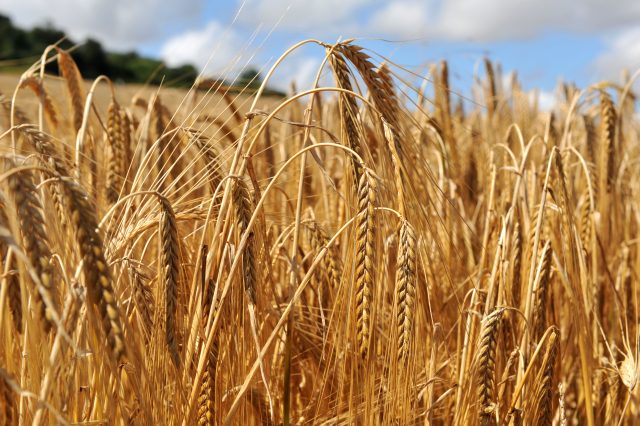Wet weather could push up beer prices
The relentless rain in the UK’s winter and spring could push up beer prices, according to an analysis of the country’s agricultural sector.

According to analysis of data by the Energy and Climate Intelligence Unit (ECIU), it is estimated the production of wheat, barley, oats and oilseed rape could be down around 4 million tonnes or 17.5% on 2023 levels.
Compared to the 2015-2023 average, the decline would be more than 5 million tonnes or 21.2%. The analysis is based on Agriculture and Horticulture Development Board (AHDB) crop area forecasts and Department for Environment, Food and Rural Affairs (Defra) yield data.
With the wet weather continuing to hamper planting of spring crops like barley, the historically high malting barley premium may hold, leading to higher costs for brewers and distillers, raising the prospect of the wet winter increasing the price of a pint.
Tom Lancaster, land analyst at ECIU said that farmers were reporting it was the “worst winter they’ve ever experienced” and that soils were so waterlogged that they could not plant or were simply too wet for tractors to apply fertlisers.
Higher imports
He said: “This is likely to mean not only a financial hit for farmers, but higher imports as we look to plug the gap left by a shortfall in UK supply.
“There’s also a real risk that the price of bread, beer and biscuits could increase as the poor harvest may lead to higher costs.
“With climate impacts only increasing as the world warms, we need to view this winter as a harbinger of things to come.
Partner Content
“Moving faster to net zero emissions is the only guaranteed way to limit these impacts and maintain our food security.”
“To withstand the wetter winters that will come from climate change, farmers need more support. The governments green farming schemes are vital to this, helping farmers to invest in their soils to allow them to recover faster from both floods and droughts.”
Last November an ECIU-commissioned report found that extreme weather had added £361 to the average food bill in the last two years.
The oilseed rape harvest this year is projected to be the hardest hit crop, down by 38% compared to 2023.
Alongside massive climate price hikes for olive oil following back-to-back droughts in Spain, this has given rise to fears about the cost of cooking oil for domestic and commercial users.
Hit and miss
The news follows one of the wettest winters on record, with the National Farmers Union warning extreme weather that is associated with climate change is one of the UK’s biggest threats to food security.
Reflecting on the wet winter, Colin Chappell, an arable farmer from Lincolnshire and member of the Nature Friendly Farming Network (NFFN) said: “It’s had a massive impact on us. We went through the winter with virtually nothing viable drilled, and while it’s now dry enough to plant some fields some of them are so bad I don’t think they’ll get drilled this year.
“The situation is very hit and miss. Looking ahead, the new Sustainable Farming Incentive is how my farm is going to survive over the next few years. The climate is making farming on heavy clay soils like mine very difficult and quite demoralising.”
Related news
Majestic pulls some higher ABV wines in wake of duty reforms
Inside Laithwaites' partnership with Channel 4
How low can you go: will en primeur price cuts tempt the market?




